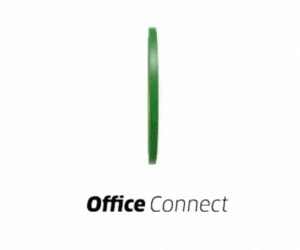In the fields of business operations and procurement, you will often read or hear the terms “Operating Supplies” and “Office Supplies” used interchangeably however there is a key difference between the two, which is important in terms of managing budget, improving workflow, clear accounting and overall continued operation of your business. Knowing the difference between operating supplies vs office supplies will help streamline your procurement and tracking of expenses whether you are doing it yourself as a small business owner, or you are a purchasing manager or bookkeeper. This guide will explore what each term means, examine how they differ, and this is important for your business operations.
What are Operating Supplies?
Operating supplies are items used during the production of a good or service, but can not be included in the final product. They are the items and tools you need to keep your business running.
Operating Supplies Examples:
Tools for cleaning and maintenance
Packaging materials such as boxes, tape, and labels
Safety items such as gloves, goggles, and vests
Lubricants or oils for machinery
Tools, small equipment used in manufacture or repair
Pallets, bins and other items needed in the warehouse
Currency Characteristics:
Used in everyday operations
Not part of a final product
Often re-ordered or restocked
The list of possible operating supplies differs from industry to industry
In manufacturing sectors, operating supplies may often be called indirect materials.
What are office supplies?
On the contrary, office supplies are used to facilitate general administrative work. These are the tools of choice to facilitate the clerks’ and organizations’ work within a company.
Examples of Office Supplies:
Pens, pencils and notepads
Paper and ink for printers
Staplers, paperclips and binders
Desks, chairs and filing cabinets
Calendars and agendas
Key Characteristics:
Used for administrative work
Located in offices
Relatively low-cost, frequently expected to be replaced
Typically straightforward to categorize for accounting
Although they may not be used directly in a production process, they are central to making an office environment productive and efficient.
Operating Supplies vs Office Supplies: The Important Differences
Understanding the differences in operating supplies vs office supplies is crucial to managing company resources effectively.
Criteria
Operating Supplies
Office Supplies
Primary Usage
Used to support production/operations
Used to support administrative functions
Industry Utilization
Manufacturing, logistics, services
All industries
Examples
Gloves, packaging, tools
Pens, printers, notebooks
Accounting Category
Often indirect costs/COGS
Overhead or general expenses
Frequency of Use
Daily in production/service areas
Daily in administrative areas
By identifying and categorizing them correctly, companies can track better on where they are spending money and how they can save.
Why Does the Difference Matter to Businesses?
Businesses do not want to confuse operating supplies vs office supplies because the different classifications can lead to mistakes and discrepancies in budgets, financial statements, and tax deductions. Here are reasons why distinguishing between them is important:
1. Accurate Financial Reporting
Misclassifying supplies affects the accuracy of expense reporting; for example, operating supplies may be included as part of cost of goods sold (COGS), while office supplies are reported as general administrative expenses.
2. Better Budgeting
Knowing the difference between production and administrative costs can help lead to better budgeting. It allows companies to maximize investments in productivity-enhancing tools.
3. Better Tax Compliance
Tax regulations typically make distinctions between different categories of business costs. If supplies are misreported as equipment, the difference in tax treatment could cost you tax deductions or even expose you to an audit.
4. Procurement Efficiency
Knowing how supplies, consumables, and capital assets are differentiated allows procurement teams to procure supplies more effectively by streamlining purchase orders, negotiating vendor terms, and balancing inventory appropriately.
Industry-Specific Examples
For additional clarity, the table below provides industry-specific examples where the distinction becomes important:
Manufacturing:
Operating Supplies: Assembly tools, lubricants for machines
Office Supplies: Production logs, time cards, clipboards
Healthcare:
Operating Supplies: Medical gloves, sanitizers, syringes
Office Supplies: Patient forms, printer paper, labels
Retail:
Operating Supplies: Pricing guns, display tags, shopping bags
Office Supplies: Receipt paper, pens, label printers
Hospitality:
Operating Supplies: Cleaning chemicals, linens, cooking utensils
Office Supplies: Reservations books, POS printer paper
Tips for Differentiating and Managing Your Supplies Better
1. Develop Separate Lists of Each Inventory
Keep separate listings for office and operating supplies so there is no confusion when auditing or reviewing your budget.
2. Use Different GL Codes
Use different GL codes in your accounting system for the different types of supply to ensure accurate financial reporting.
3. Train Your Staff
Educate your procurement and finance staff on the differences between operating supplies vs office supplies to limit mistakes.
4. Review Use of Supplies Quarterly
Regular review of supplies allows you to ensure there is no misuse of supplies and protocol for budget.
Common Errors to Prevent
Many organizations make these common mistakes when it comes to operating supplies and office supplies:
Mixing office supplies with operating supplies altogether in an accounting software category
Ordering excessive amounts of office supplies and neglecting to order operating supplies, which are crucial to your business
Failing to track the usage of supplies resulting in waste or loss
Not reviewing vendor invoices and noting items mis-categorized
If you can avoid these common mistakes, you can ensure greater operational visibility and efficiency.
Closing Thoughts: Make Better Business Decisions
The issue of Operating Supplies vs. Office Supplies is important to your business for three reasons: financial health, operational efficiency, and compliance with government regulations. Knowing the difference between operating supplies and office supplies in administrative costs means managing costs, budgeting, and long-term planning more accurately and effectively.
Whether it is auditing your supply chain or reviewing how operating processes can be enhanced internally, the difference between operating supplies and office supplies is a small step with big consequences. Make it part of your business, the review process, and sorting out your supplies. Your balance sheet will thank you.





